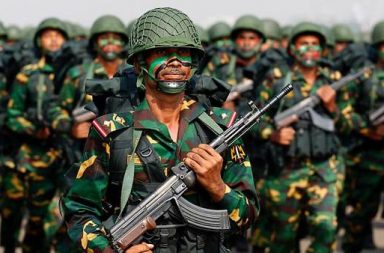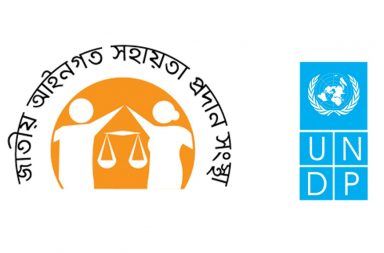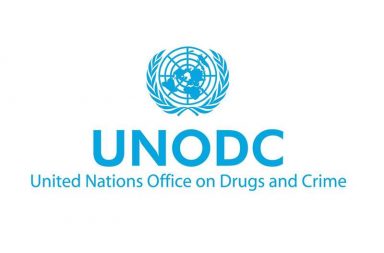By FutureLaw Desk
Society for Critical Legal Studies (SCLS) is hosting the Advanced Course on Constitutional Law in Bangladesh. The Course will be conducted by Mr. Jashim Ali Chowdhury, Assistant Professor at the University of Chittagong and Ph.D. Candidate at King’s College, London (Commonwealth scholar).
Registration
Facebook Event Link: https://fb.me/e/5CLKw80rr
Registration Link: https://forms.gle/Uqrc34idFUUK7Na89
At first please send Taka 1230 as registration fee via Bkash. Bkash (personal) numbers are: 01859199685 (Bkash personal) or 01515668445 (Bkash personal).
After sending the registration fee to one of the designated numbers, please SMS your name, University, and year to the Bkash number. Also, note down the transaction ID or TrxID after sending the fee. That transaction ID is needed to complete the registration link. After noting down the transaction ID/ TrxID (received via SMS from Bkash) please go through the registration link above to complete the process
Proposed Sessions and topics to be covered
1. Introduction to Constitution and Constitutional LawConstitution as Rule Book, and as a System of Governance; The idea of Constitutionalism
2. Historical Background of Bangladesh; Constitution-Making: The question of democratic participation
3. Preamble – The Four Pillars of Bangladesh Constitution (1) – Bangalee v. Bangladeshi Nationalism
4. Preamble – The Four Pillars of Bangladesh Constitution (2) – Secularism, Religious Discrimination, and IntoleranceState Religion
5. Preamble – The Four Pillars of Bangladesh Constitution (3) – Socialism v Capitalism
6. Constitutional Supremacy and Military Intervention Illiberal Democracy and the Democratic Backsliding
7. Constitutional Supremacy and Parliamentary Supremacy; Political Constitutionalism and Legal Constitutionalism; Case for and against Judicial Review
8. Separation and/or fusion of powers and their newer variants
9. Fundamental Principles of State Policy; Questions of Judicial Enforceability – Right to Life Jurisprudence of the Indian Subcontinent
10. Rule of Man vs. Rule of Law
11. Fundamental Rights, Rights Restriction and Judicial Activism
12. Equality Jurisprudence of Bangladesh Supreme Court: A Social and/or Distributive Justice Court?
13. Protection in respect of arrest, remand. Trial & punishment Preventive Detention, Extra-judicial killing, Custodial torture
14. Freedom of speech & press: Information Technology and Digital Security laws in perspective
15. Freedom of speech, expression & press: Criticizing the prominent leaders – desirability and limits
16. “Fourth Branch Institutions” and Civil Society
17. Presidentialism in Bangladesh: Presidential Prerogatives and Discretion
18. Prime Minister and the CabinetQuestion of Accountability – Individual and Collective
19. Westminster System and the Prime Ministerial Dictatorship
20. Parliament as an Accountability Institution: Problems of Party System
21. Parliament as an Accountable Institution Electoral accountability of parliament -Erstwhile Caretaker Government and way forward
22. Continuous Accountability of ParliamentMPs’ constituency works
23. Legislative and budgetary process: Government control and limits of parliamentary scrutiny
24. Private member or non-government businesses in parliament
25. Problems and Prospects of Parliamentary Committee System
26. Parliamentary privileges & immunitiesJudicial Independence vs AccountabilityWhere is the Institutional Interaction?
27. Independence of judiciary: Appointment and Removal of Supreme Court Judges – What is wrong with the Sixteenth Amendment?
28. Independence or Separation of Subordinate Judiciary Mobile Courts and the fallouts of Masdar Hossain verdict
29. Judiciary and the dilemma of the Office of Profit
30. Public Interest Litigation: Judicial Activism and Restraint
31. Strong and Weak Form Judicial Review; Any scope of Constitutional Dialogue?
32. Political disputes before the Court: “Abusive Constitutionalism”
33. Emergency and Judicial Review of Emergency Powers
34. Democratic Self-governance: Decentralization and Local Government
35. Services of the Republic and rise of an unchecked Bureaucracy; Ombudsman and Administrative Tribunal
36. Amending the constitution: Problems of Basic Structure and Perpetuity: Question of Inter-generational Adaptation
37. Politics of constitutional amendments in Bangladesh
38. Reflections: Problems of constitutionalism in Bangladesh
39. Looking Forward: Democratic institution-building and constitutional reform
40. Final Session: Feedbacks and critical evaluation of the Course



